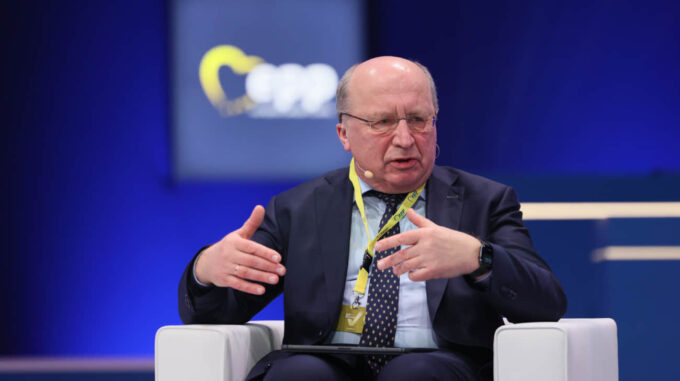European Commissioner for Defence warns: the West risks making five serious mistakes in its approach to Russia’s war against Ukraine

At the Kyiv Security Forum on May 8, European Commissioner for Defence Andrius Kubilius delivered a profound analysis and cautions regarding strategic shortcomings that Western countries may continue to overlook in their policy towards the Russia-Ukraine conflict. Addressing an audience of experts, the politician drew parallels with World War II to illustrate five global errors that threaten to escalate the situation and complicate prospects for Ukraine and its allies. The first and most critical mistake — as Kubilius emphasized — is insufficient aid to Ukraine. He noted that over the past three years, the EU and the US have annually allocated approximately 40 billion euros to support Kyiv. While this is a considerable amount, its share relative to GDP is too small — less than 0.1%. Compared to what countries spend on their defense, these funds are virtually insignificant. The European Commissioner stressed that Ukraine, fighting for its independence and territorial integrity, is simultaneously defending the security and interests of the West, as it is precisely Ukraine that holds back the spread of aggression and prevents the Russian adversary from expanding its influence. The second major mistake is a misunderstanding or ignoring the distinction between the aggressor and the victim in this war. Kubilius pointed out that such so-called "ambiguity" in defining the roles of the parties could deepen the problem and reduce support for Ukraine. It is essential not to treat Putin as an equal interlocutor or potential partner in a future conflict, separate from the Russian regime’s ambitions and intentions, which continue to demonstrate aggressive tendencies. The third error involves hope for improvement in relations with Russia after a brief lull or "window of peace" in the conflict. The European Commissioner clearly stated that NATO and other Western institutions perceive Russia as the greatest threat to security in Europe. The war in Ukraine shows that pursuit of "friendship" with an aggressor who displays outright defiance and imperial ambitions is a strategic mistake. In clearer terms, he implied that such policies of "good neighborliness" would only encourage Putin to undertake new acts of aggression and undermine trust among allies. The fourth, historical mistake, Kubilius recalled that lessons from history are vital. Recognizing the occupation of Crimea in 2014 without a response or adequate actions was a regression in diplomacy and security. He reminded that the betrayal of Czechoslovakia in 1938 triggered the large-scale aggression of Nazi Germany in Europe. Comparing this historical event with the current situation, the politician warned that demands for Ukraine to cede parts of its territory under pressure from the aggressor represent a tragic repetition of errors that already cost Europe’s peace at that time. The fifth — and perhaps most sensitive — issue is Ukraine’s potential NATO membership. Kubilius emphasized that refusal on this matter could spoil not only Ukraine’s prospects but complicate the overall security situation. Russia insists that Kyiv should not join the alliance not out of fear of attack, but to avoid having to provide direct protection against potential future Russian aggression. According to the European defence expert, this is a risky game with fire. Rejecting Ukraine’s NATO membership would only increase the risk of escalation and hinder the alliance’s preparations for any scenario. Alongside these statements, on May 8, foreign ministers of the Baltic countries, Poland, the Czech Republic, Moldova, and Ukraine published a joint column analyzing lessons from World War II and issuing important warnings to the world about possible scenarios for ending the war. They warned of scenarios that are extremely dangerous and could lead to further destabilization in the region and globally. Equally significant is the warning from British Prime Minister Rishi Sunak, who on the same day underscored that Russia’s invasion of Ukraine has highlighted the urgent relevance of World War II lessons. He stated that history demonstrates: the fight for freedom and independence did not end in 1945, and these values must be preserved and defended today. In conclusion, Kubilius’s speech and the joint statements of Western leaders serve as a signal for a more cautious and strategic policy. It is crucial to heed these lessons to avoid repeating historical mistakes and prevent even greater damage to Ukraine and global security. After all, as emphasized, war is not only fought on the front lines but also in the realms of diplomacy, memory, and responsibility to future generations.

